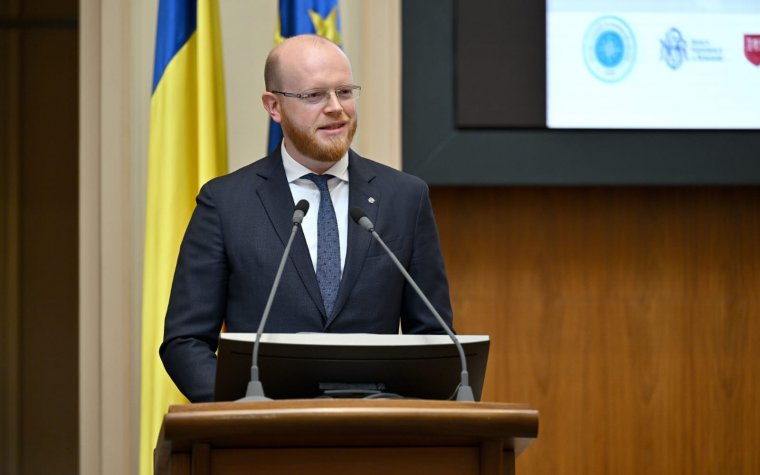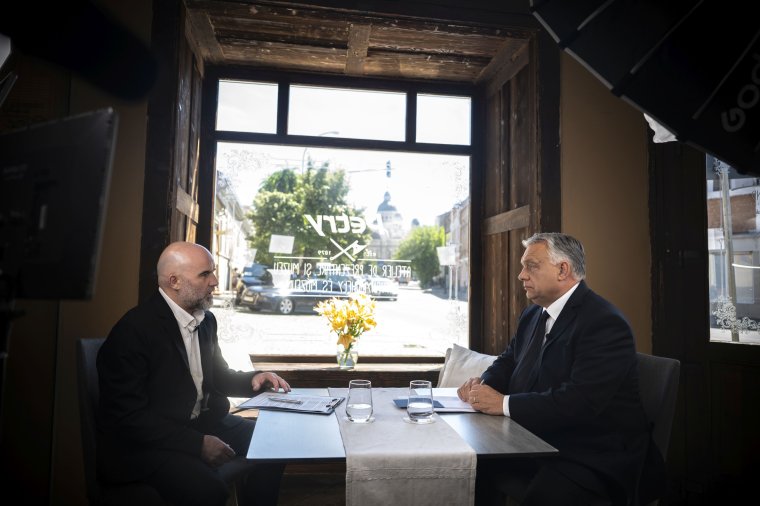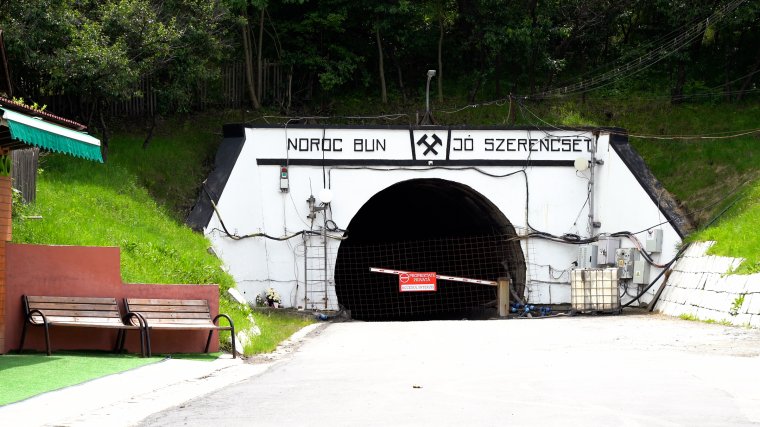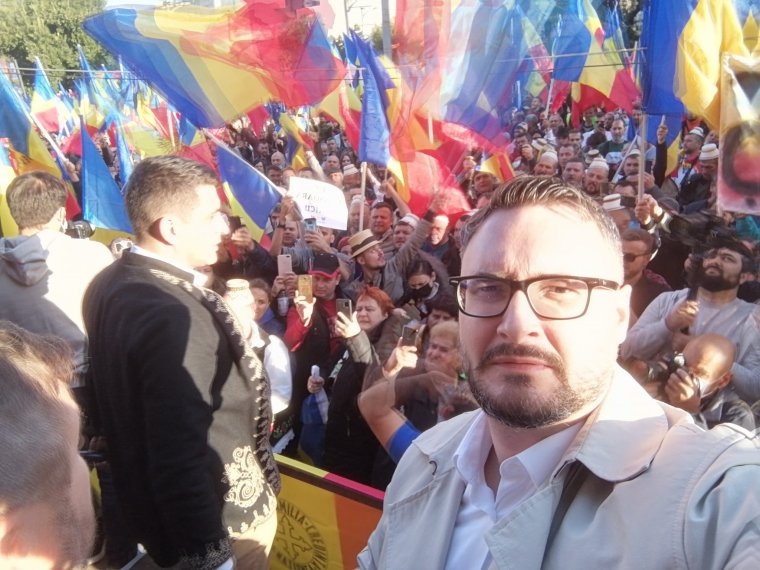
Chauvinist act. A woman was subjected to slurs and insults for speaking Hungarian on the phone in Cluj-Napoca
Fotó: Pinti Attila
A woman in Cluj-Napoca (Kolozsvár) was confronted and told not to speak Hungarian; moreover, she was even called a „bozgor” (a derogatory term meaning „homeless” or „without a homeland”). The Cluj County Police told Krónika that an investigation has been launched in connection with the incident. This is now the second chauvinist, anti-Hungarian incident in the Cluj metropolitan area within three months where someone was harassed because of their nationality.
2025. szeptember 12., 19:262025. szeptember 12., 19:26
The chauvinist climate once fueled in the 1990s by former mayor Gheorghe Funar, known for his hostility toward Hungarians, seems to be resurfacing in Cluj-Napoca. Not long ago, a Romanian woman lashed out at another woman for speaking Hungarian. The incident was made public on social media by Tudor Duică, leader of the regionalist association TEUS, Transilvania Noastră – Erdélyünk – Unser Siebenbürgen („Our Transylvania”).
Duică published his friend’s short account of the episode: Mărginean’s wife was on her way to a pulmonology clinic near the Cluj train station when she received a call from a client in Hungary. She began speaking in Hungarian. „At that moment, my wife was verbally attacked by a well-dressed lady over 50: ‘Bozgoroaică [the feminine form of ‘bozgor’ in Romanian – editor’s note], speak Hungarian at home, not on the streets of Cluj-Napoca!” – he recounted. Adrian Mărginean also reported that the victim was unable to respond to the insult.
„What would her client, who regularly sends buses full of Hungarian tourists to Cluj-Napoca – tourists who spend thousands of euros in the city – think if he knew it is unsafe to speak Hungarian in public here?” said the Cluj resident. He added that the Funar-esque Romanian woman was tall and strong, and in the event of a physical assault, his wife would have been at a disadvantage.
Tudor Duică, a businessman and promoter of Transylvanist and regionalist ideas, warned that although incidents like this ought to be unthinkable,
„We must stand in solidarity with Hungarians; we cannot leave them at the mercy of these idiots — there’s no other way to describe them,” he wrote, before unleashing some harsh words against Dan Tanasă – whom he called a „stinking chauvinist” – a member of parliament from the extremist-nationalist Alliance for the Union of Romanians (AUR). The news portal Știri de Cluj published an article on Friday about Duică’s post.
On Friday, our newspaper contacted the spokesperson of the Cluj County Police Inspectorate regarding the case, and it emerged that, following the Romanian portal’s article, an official investigation was launched into the incident. We learned that the probe is being carried out on suspicion of
As previously reported, it also came to light recently that back in June, a Hungarian-speaking man was attacked in a grocery store in Florești (Szászfenes), a suburb of Cluj-Napoca. The victim told Krónika that a Romanian man assaulted him after overhearing him speaking Hungarian with his wife. According to the victim, who asked not to be named, the attacker called him a derogatory slur, ordered him and his wife to speak Romanian since they were living in Romania, and told them to “go to Hungary.”
The assailant, who was on a bicycle, had chains hanging from his hand, which he dragged across the victim’s arm, leaving it bloodied; the victim even shared a photo with our colleagues showing the wound. „We didn’t want to file a complaint because we didn’t want trouble – we don’t need the circus,” the man told Krónika when asked if he had reported the incident to police. He added that he only decided to make the case public after hearing about the assault of an Asian migrant worker in Bucharest.
The Cluj protest against anti-Hungarian hostility still resonates
On April 3, several hundred people took part in a peaceful demonstration organized by Hungarian youth organizations of the city, protesting against the March 31st hooligan brawl that escalated into assaults on Hungarians. The organizers of the event called it unacceptable that anyone in Cluj-Napoca should face retribution simply for speaking Hungarian in public. As it happened, on the evening of March 31, ultra-fans of the top-league football club Universitatea Cluj assaulted Hungarian youths both because of their ethnicity and because they supported the city’s rival team, CFR Cluj.
The No. 6 police station in Florești launched an investigation on Tuesday ex officio in connection with the anti-Hungarian incident that took place there. The Cluj County Police confirmed that this case too is being investigated on suspicion of incitement to violence, hatred, and discrimination.
The Hungarian man from Florești suggested that the attack may have been linked to Dan Tănasă’s incitement against people of other ethnicities. On his Facebook page, the opposition politician had encouraged his followers not to accept deliveries if the courier was not Romanian, telling them: “do not encourage the import of unqualified Asian and African migrant workers.”
On August 26 in Bucharest, a 20-year-old man hit and kicked a Bangladeshi food courier. Evidence for the incident was provided by the attacker himself, who filmed on his phone as he approached the cyclist from behind while he was waiting at a traffic light, and without any warning, punched him in the face. When the victim asked what the problem was, the attacker called the Bangladeshi migrant a „negro” and told him that he was the problem, that he should go back to his country because in Romania he was an „intruder.” A police officer who happened to be off-duty nearby witnessed the event, intervened after hearing the victim’s cries for help, and caught the attacker as he tried to flee the scene. The young man was charged with assault motivated by racism and xenophobia.
The attacker was placed in 30-day pre-trial detention. On Tuesday, September 2, the Prosecutor’s Office of Bucharest’s 2nd District announced that they had also launched an investigation against the 20-year-old for the public use of fascist, legionary, racist, or xenophobic symbols, since on June 14 he had uploaded a video compilation – viewable without restriction – to a social media platform. The video featured symbols of the Legionary Movement and a photo of Adolf Hitler standing in front of Nazi swastika flags.
Since then, two Nepalese migrant workers have also been assaulted in Cluj-Napoca, one of whom is now in a coma in hospital. According to the attacker’s lawyer, the motivations in this case did not stem from xenophobia but rather alleged sexual harassment: the two Asian men had supposedly harassed the attacker’s sister and partner.

Agresszívan rászóltak egy nőre Kolozsváron, hogy ne beszéljen magyarul, sőt még bozgornak (hazátlan) is nevezték. A Kolozs megyei rendőr-főkapitányság a Krónikával közölte, hogy a történtek kapcsán eljárást indított.
„The economic situation in Romania is currently so severe that the country is already standing at the doorstep of recession.” „Romania could already be in recession.” „Only a miracle could save us from recession.”

As of August 1, shoppers will have to dig deeper into their pockets – partly due to a 2–12% increase in the value-added tax (VAT), and partly due to the rise in excise duties.
“I would like to speak with Romania’s new president as soon and as extensively as possible, because we have shared issues within the European Union, and the interests of Romanians and Hungarians often align," Prime Minister Viktor Orbán told Krónika.

Although Romania is in urgent need of major adjustments given its struggling financial situation, the four-party coalition was only just formed following the presidential election in May.

Desperate, silent people, hopelessness, and the authorities’ secrecy characterize the situation in Parajd (Praid) following the salt mine tragedy.

Romania has lost the most residents over the past 20 years among the EU member states according to the „Demography of Europe – 2025 edition” research by the Eurostat statistical office.

I would like to share a personal story from 1986 that I have never told before. I had just finished my first year studying physics at university.

While Sunday’s first-round results of Romania’s presidential election were not entirely unexpected, the outcome delivered a political shock of historic proportions.

Pope Francis, who passed away on Easter Monday at the age of 88, left behind an exceptional legacy. Papal Prelate József Marton spoke to Krónika about the Pope’s role in the history of the Catholic Church and his visit to Csíksomlyó.
It took Emil Boc a long time to recover from the punch in the face that shattered the smiling cityscape posing as the poster child of multiculturalism.

szóljon hozzá!